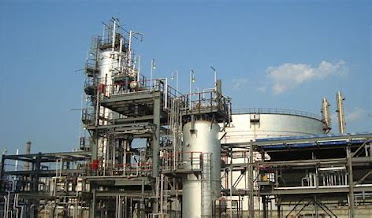By Joshua Omoniyi
In a significant turn of events for Nigeria's energy sector, local refineries have dramatically increased their output, setting the stage for a potential reduction in the nation's reliance on petrol imports. This development comes as welcome news for a country that has long grappled with the challenges of fuel scarcity and fluctuating import costs.
For years, Nigeria, despite being one of Africa's largest oil producers, has paradoxically relied heavily on imported refined petroleum products. This dependency has often left the nation vulnerable to global oil price volatility and supply chain disruptions. However, recent advancements in refinery operations and strategic policy implementations have spurred a notable boost in domestic production capabilities.
At the heart of this transformation is the Nigerian National Petroleum Corporation (NNPC), which has been at the forefront of modernizing and expanding the operational capacities of its refineries. With enhanced technology and increased investments in infrastructure, the refineries have not only ramped up their output but also improved the quality of the refined products.
This surge in production is expected to have a profound impact on the Nigerian economy and its citizens. For consumers, the most immediate benefit will likely be a stabilization, if not a reduction, in fuel prices. With less dependence on costly imports, the domestic market can expect more consistent supply levels, reducing the notorious long queues at petrol stations that have become a recurrent inconvenience for many Nigerians.
Moreover, this development could lead to broader economic benefits, including job creation within the refining and ancillary sectors, and a potential boost in foreign exchange reserves as the country reduces its import bills. Analysts are optimistic that with sustained domestic production, Nigeria could eventually transition from a net importer to an exporter of refined petroleum products, further solidifying its position in the global energy market.
For the average Nigerian, this shift presents a glimmer of hope for a more self-sustained energy future. It signals a move towards greater energy independence and economic resilience. As the country navigates this pivotal moment, stakeholders across the board are urged to maintain the momentum, ensuring that this newfound capacity translates into tangible benefits for every citizen.
As Nigeria embarks on this promising path, the world watches closely, hopeful that this could herald a new era for Africa's most populous nation—a time when its abundant natural resources are fully harnessed to uplift and empower its people.
*Joshua Omoniyi is a seasoned journalist with a keen interest in energy and economic affairs. His insightful reporting brings critical developments in the Nigerian energy sector to the forefront, offering readers a comprehensive understanding of the industry's dynamics.*




.jpeg)








0 Comments